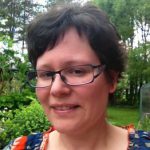 Dolly Jørgensen, Luleå University of Technology
Dolly Jørgensen, Luleå University of Technology
Dolly Jørgensen is an environmental historian who has researched a broad array of topics from medieval forestry to modern animal conservation. She has co-edited two volumes: New Natures: Joining Environmental History with Science and Technology Studies (2013) and Northscapes: History, Technology & the Making of Northern Environments (2013). She is an Associate Professor of History of Environment and Technology at Luleå University of Technology, Sweden, and is currently the President of the European Society for Environmental History.
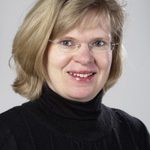 Heidi Hein-Kircher, Herder-Institut
Heidi Hein-Kircher, Herder-Institut
Heidi Hein-Kircher earned her PhD from the Heinrich Heine University in Düsseldorf. She has been on the research staff of the Herder-Institute for Historical Research in East Central Europe in Marburg, Germany, since 2003. Her research focuses on political and cultural memory and political cults in East Central Europe. Another field of research is urban history of the 19th and 20th-century East Central Europe, especially emerging cities and L’viv (Lwów/Lemberg) in the 19th century in relation to local government. Generally interested in Polish history and in Jewish and minority history of 19th and 20th centuries, she is working on democratization, nationalizing and securitizing processes as well as on East Central Europe as a conflict region.
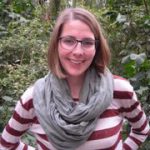 Katharina Kreuder-Sonnen, University of Siegen
Katharina Kreuder-Sonnen, University of Siegen
Katharina Kreuder-Sonnen is an assistant professor at the department of Contemporary European History at the University of Siegen/Germany. Her research interests lie in the history of science, the history of bacteriology and Polish history in the 19th and 20th century. In her PhD-thesis she studied the global circulation of knowledge in the field of bacteriology at the turn of the 20th century, focusing especially on Polish doctors and scientists and on their techniques to make bacteriological knowledge move.
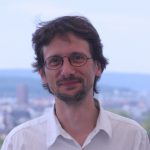 Patrick Kupper, University of Innsbruck
Patrick Kupper, University of Innsbruck
Patrick Kupper is Full Professor for History and Head of the Economic and Social History Unit at the University of Innsbruck. His expertise is in transnational economic, social and environmental history of modern Europe. He is a board member of the International Association for Alpine History (IAAH) and of Arcadia: Explorations in Environmental History and he chairs the Summer School Committee of the European Society for Environmental History (ESEH). His latest book publications include Die Naturforschenden: Auf der Suche nach Wissen über die Schweiz und die Welt 1800–2015 (2015), Creating Wilderness: A Transnational History of the Swiss National Park (2014), and Civilizing Nature: National Parks in Global Historical Perspective (ed. with Bernhard Gissibl and Sabine Höhler, pb 2015).
 Anna Mazanik, Max Planck Institute for the History of Science
Anna Mazanik, Max Planck Institute for the History of Science
Anna Mazanik is a postdoctoral fellow at the Max Planck Institute for the History of Science in Berlin. Her research focuses on the history of public health, environmental history and urban history of modern Russia.
She is currently working on a book “Smell of Change: The Politics of Public Hygiene in Late Imperial Moscow.” It explores how Moscow elites engaged with the problems of urban wastes, pollution, sanitation, and disease in the context of the post-reform political developments, on the one hand, and the rise of “scientific medicine” and the germ-theory, on the other.
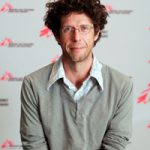 Duncan Mclean, Charles University and Anglo-American University Prague
Duncan Mclean, Charles University and Anglo-American University Prague
Duncan Mclean holds a PhD in history from the Ecole des Hautes Etudes en Sciences Sociales in Paris, and divides his time between humanitarian work and academia. He has worked with Médecins Sans Frontières (MSF) since 2002 in various capacities, including Program Manager for Nigeria, Uganda, Haiti, Ethiopia, Somalia, South Sudan and Sudan; Head of Mission in the Occupied Palestinian Territories, Nepal, and Chad; and Field Coordinator in Sudan, Thailand, and Myanmar. He has also provided operational support in Pakistan and conducted research projects for MSF in Myanmar, Thailand, Nepal and the Democratic Republic of Congo.
Dr. Mclean is currently based in Prague where he lectures on the history of disease, colonialism, and conflict studies at Charles University and Anglo-American University. He continues to work with MSF, contributing chapters on the kidnapping of aid workers in the Caucasus and the challenges of medical evacuations in recent anthologies. In 2015 he researched and drafted International Crisis Group report “The Politics Behind the Ebola Crisis”.
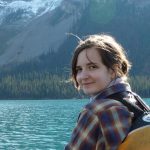 Liza Piper, University of Alberta
Liza Piper, University of Alberta
Liza Piper is an associate professor of History at the University of Alberta where she teaches environmental history and the histories of northern and western Canada. Her publications include The Industrial Transformation of Subarctic Canada (2009) and Sustaining the West: Cultural Responses to Canadian Environments (2015) an edited collection of eco-criticism, art, poetry, and environmental history. Her research and writing has focused on the histories of health, natural resource exploitation, and climate across Canada and in circumpolar context, with particular attention to the experiences of Indigenous people in the North.
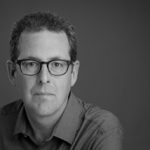 Paul Sutter, University of Colorado, Boulder
Paul Sutter, University of Colorado, Boulder
Paul Sutter is a professor of History at the University of Colorado, Boulder. Paul is the author of Driven Wild: How the Fight against Automobiles Launched the Modern Wilderness Movement (University of Washington Press, 2002) and Let Us Now Praise Famous Gullies: Providence Canyon and the Soils of the South (University of Georgia Press, 2015); he is coauthor of The Art of Managing Longleaf: A Personal History of the Stoddard-Neel Approach (University of Georgia Press, 2010), and coeditor of Environmental History and the American South: A Reader (University of Georgia Press, 2009). Paul has published numerous articles and book chapters on the American wilderness movement, the environmental history of the US South, US imperial environmental history, and environmental historiography—including a recent state-of-the-field essay in the Journal of American History. He is also the series editor for Weyerhaeuser Environmental Books. Paul is currently a Carson Fellow at the Rachel Carson Center in Munich, where he is working on a book, tentatively titled Pulling the Teeth of the Tropics: Environment, Disease, Race, and the US Sanitary Program in Panama, 1904–1914, which interprets American expansion and imperial public health through the lens of environmental history.